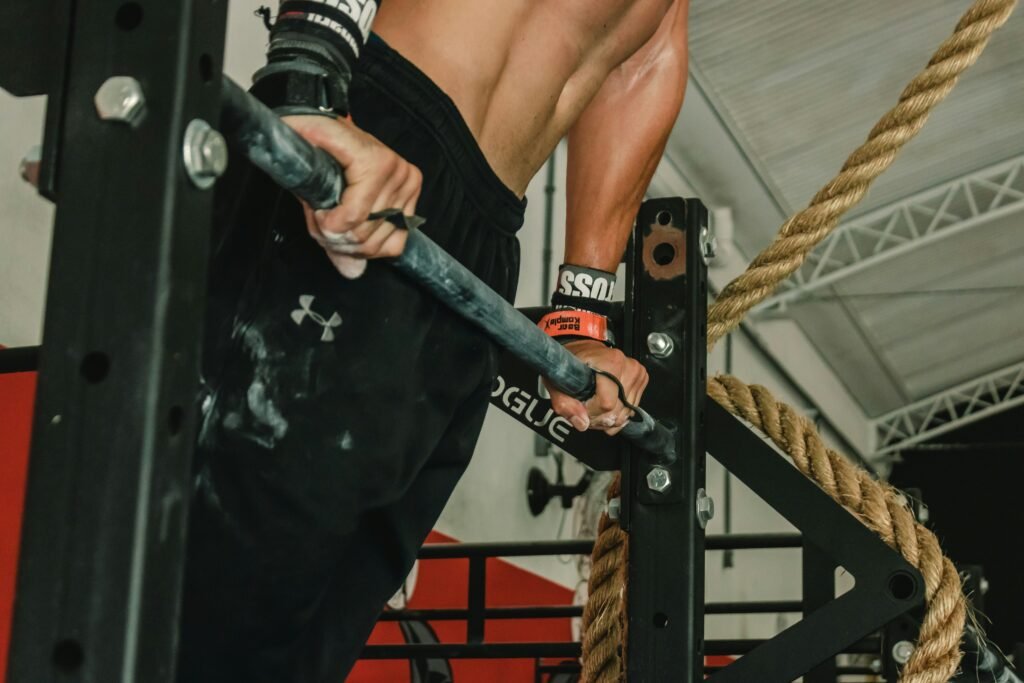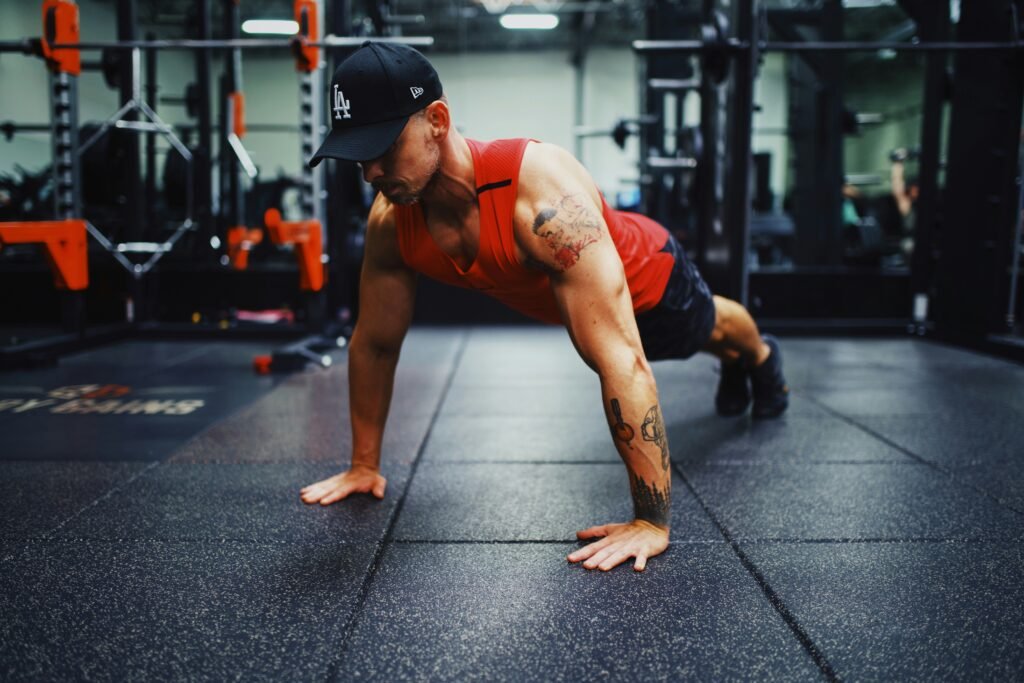A complete, floor-friendly travel routine you can do in tiny rooms—no gear, no excuses, science-backed, and optimized for busy business travelers.
Why 15-Minute Workouts Work (Science)
You don’t need a 60-minute gym session to build fitness, burn calories, or maintain muscle while traveling. Properly structured short sessions—especially those using compound bodyweight movements, intervals, and near-continuous work—deliver a potent stimulus for cardiovascular fitness, muscular endurance, and metabolic health.
- High-Intensity Intervals (HIIT): Brief bouts of work followed by short rests elevate heart rate, improve VO2 max, and boost EPOC (post-exercise calorie burn).
- Compound Moves, Max Return: Squats, push-ups, hip hinges, and plank variations recruit multiple muscle groups—more work in less time.
- Density Training: Doing more work per minute is ideal when you only have 15 minutes between calls or before a flight.
- Consistency > Perfection: Frequent “minimal-dose” sessions maintain momentum, reduce stress, and prevent the “all-or-nothing” trap on the road.
Common Travel Obstacles & How to Beat Them
- No space? Use “micro-footprint” moves: wall sits, incline push-ups on the desk, slow squats, dead bugs, side planks.
- Noise concerns? Remove impact: swap jumping jacks for shadow boxing, burpees for walk-outs, and high-knees for marching with power arms.
- Jet lag? Keep intensity moderate on day 1–2, prioritize mobility and breathing, then ramp intensity.
- Time pressure? Use EMOM (every minute on the minute) or AMRAP (as many rounds as possible) formats to remove decision-making.
- Motivation? Do the “just 5 minutes” trick. Once you start, you’ll usually finish.
Your 15-Minute Hotel Room Workout (Zero Equipment)
Warm-Up (2 minutes)
- Neck rolls × 20 sec, Shoulder circles × 20 sec
- World’s greatest stretch (alternating) × 40 sec
- Slow air squats × 40 sec (3-sec down, 1-sec up)
Main Circuit (12 minutes)
Set a timer for 12 minutes. Move through the circuit at a steady pace. Rest only as needed.
- Prisoner Squats × 12
- Push-ups × 10 (incline on desk if needed)
- Reverse Lunges × 8/leg
- Forearm Plank × 30–40 sec
- Glute Bridge × 12 (1-sec squeeze at top)
- Dead Bug × 8/side
Goal: 3–5 total rounds depending on speed and fitness.
Cool-Down (1 minute)
- Calf & hip-flexor stretch × 20–30 sec each
- Box breathing 4-4-4-4 × 3–5 cycles

Exercise Guide: Form Cues & Progressions
1) Prisoner Squat
Setup: Hands lightly behind head, chest up, feet shoulder-width. Sit hips back and down; keep knees tracking over toes.
Common mistakes: Heels lifting, knees caving, collapsing torso.
Make it easier: Sit-to-bed squats, slow tempo with fewer reps.
Make it harder: 3-sec eccentrics, 1-sec pause at bottom, tempo 3-1-1.
2) Push-Up
Setup: Hands under shoulders, body in straight line. Touch chest near between hands, press away strong.
Easier: Incline on desk or wall.
Harder: Decline feet on bed, hand-release push-ups, 2-sec pause at bottom.
3) Reverse Lunge
Setup: Step back, drop knee under hip, front shin vertical, drive through front heel to stand.
Easier: Shorter range or supported with hand on desk.
Harder: 3-sec down, 1-sec pause, or add knee-drive at top.
4) Forearm Plank
Setup: Elbows under shoulders, ribs down, glutes tight. Imagine dragging elbows to hips to brace.
Easier: Knees down or 15–20s holds.
Harder: Alternating toe taps, shoulder taps from high plank, or RKC plank (max tension) for 10–20s.
5) Glute Bridge
Setup: Heels near glutes, feet hip-width. Drive hips up, squeeze glutes, avoid over-arching low back.
Easier: Shorter range or isometric holds.
Harder: Single-leg bridge × 8/side, 2-sec hold at top.
6) Dead Bug
Setup: Low back “gently pressed” into floor. Exhale as arm+opposite leg extend; keep ribs down.
Easier: Tap heel only or shorten range.
Harder: Add 3-sec eccentric lowers, or extend both legs together.
Hotel-Proof Variations: Tiny Rooms, Noisy Floors, or Jet Lag
No-Jump/No-Noise Version
- Squats → Tempo squats (3-sec down)
- Push-ups → Incline push-ups
- Lunges → Split squat (no stepping)
- Plank → RKC plank (short, hard holds)
- Glute bridge → Single-leg bridge (slow)
- Dead bug → Slow controlled reps with long exhales
Tiny-Space Option (6×6 feet)
Rotate sit-to-stand, incline push-up on desk, split squat, forearm plank, glute bridge, dead bug. All in place.
Jet-Lag Reset (12–15 minutes)
- Mobility: neck, T-spine, hip openers × 3 minutes
- Easy circuit: squats × 10, wall push-ups × 10, dead bug × 6/side, glute bridge × 10 → 3 rounds
- Breathing: 4-4-4-4 box breathing × 3–5 cycles
Travel Nutrition & Hydration (Energy Without Bloat)
What you eat on the road determines how you feel in the room. Use this simple framework:
The “3-2-1” Rule
- 3 liters of water/day (or clear urine target)
- 2 palm-sized servings of protein per meal (or 1 if snacking)
- 1 fist of colorful veg or fruit each time you eat
Airport & Hotel Hacks
- Grab-and-go: Greek yogurt, jerky, nuts, fruit cups, pre-made salads.
- Breakfast buffet strategy: eggs + fruit + yogurt; skip pastries if you need stable energy.
- Room service picks: grilled proteins, steamed veggies, baked potato or rice.
Pre-Workout & Post-Workout
- 60–90 min pre: light protein + fruit (e.g., yogurt + banana).
- Post: protein-forward meal (e.g., omelet + fruit; chicken + veg + rice).
Recovery Hacks When You’re Living Out of a Suitcase
- Walk after flights: 10–20 minutes to restore circulation and reduce stiffness.
- Hotel mobility: 5 minutes of calf, hip-flexor, and T-spine openers before bed.
- Sleep cues: Dark, cool room; eye mask; 30-minute caffeine cut-off before bedtime (ideally 8 hours).
- Morning light: Open curtains for natural light to set circadian rhythm.
- Breathing: 4-7-8 or box breathing to downshift after evening sessions.
Sample Travel Schedules (3, 5 & 7 Days)
| Plan | Day 1 | Day 2 | Day 3 | Day 4 | Day 5 | Day 6 | Day 7 |
|---|---|---|---|---|---|---|---|
| 3-Day | 15-min workout | Walk + Mobility | 15-min workout | Rest/Walk | 15-min workout | Mobility | Rest |
| 5-Day | 15-min workout | 15-min workout | Walk/Mobility | 15-min workout | 15-min workout | Rest | Walk |
| 7-Day | Strength focus | Cardio-density | Mobility + walk | Strength focus | Cardio-density | Mobility reset | Easy recovery walk |
Mini Progress Tracker (Log It Fast)
Copy this into your notes app or print it before you travel.
| Date | Rounds | Push-Ups (best set) | Plank (sec) | Energy (1–5) | Notes |
|---|---|---|---|---|---|
Frequently Asked Questions
Can 15 minutes really make a difference?
Yes. When intensity and density are high, 15 minutes provides a meaningful stimulus for heart, lungs, and muscles—especially if you train most days while traveling.
What if the floor is hard or dirty?
Use a towel for planks/bridges. For push-ups, go incline on the desk to stay off the floor.
How do I progress over a multi-week trip?
Increase reps by 1–2 per set, extend planks by 5–10 seconds, or add a fourth/fifth round within the same 12 minutes.
What if I’m sore from flights?
Start with the jet-lag reset or a mobility-only session. The goal is circulation and feel-good movement, then ramp up intensity tomorrow.
Your One-Line Action Plan
Set a 15-minute timer, run the circuit above, and log your rounds. Repeat daily. Progress happens because you showed up—no excuses required.
Disclaimer: Always consult a healthcare professional before starting any new exercise program, especially if you have injuries or medical conditions.


